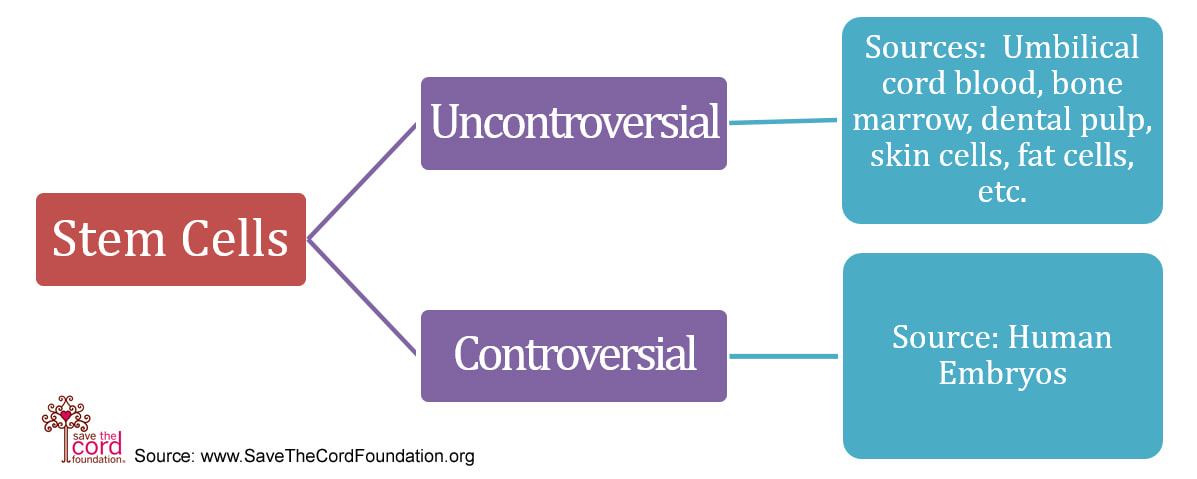Types of Stem Cells
Stem cells have the remarkable capability to develop into many different cell types in the body, and are often referred to as the “master cells” or the “building blocks” of blood, the immune system and organ tissue. It is important to learn about stem cells as they serve as a sort of repair system for the body, as they can divide to replenish other cells. This means that these cells have the ability to create tissue and can replace virtually any cell within the body.
There are three main categories of stem cells:
Cord blood stem cells are younger than adult stem cells and have tremendous abilities to change into different types of cells and to continually divide and renew themselves. Because of this, there are fewer incidences of Graft Versus Host Disease (GVHD), where the body rejects the transfused stem cells. Another very important point about cord blood stem cells is that, unlike embryonic stem cells, cord blood stem cells are free of ethical debate because these cells if not used would just be thrown away.
Adult stem cells found in bone marrow and peripheral blood have the ability to change into other types of cells as well. However, they are difficult to acquire, the cells are the same age as the donor is and there is an increased risk of rejection by the recipient.
Embryonic stem cells have the ability to develop into many different types of cells. However, there are a number of ethical debates surrounding the methods of acquiring embryonic stem cells and their use in research.
There are three main categories of stem cells:
Cord blood stem cells are younger than adult stem cells and have tremendous abilities to change into different types of cells and to continually divide and renew themselves. Because of this, there are fewer incidences of Graft Versus Host Disease (GVHD), where the body rejects the transfused stem cells. Another very important point about cord blood stem cells is that, unlike embryonic stem cells, cord blood stem cells are free of ethical debate because these cells if not used would just be thrown away.
Adult stem cells found in bone marrow and peripheral blood have the ability to change into other types of cells as well. However, they are difficult to acquire, the cells are the same age as the donor is and there is an increased risk of rejection by the recipient.
Embryonic stem cells have the ability to develop into many different types of cells. However, there are a number of ethical debates surrounding the methods of acquiring embryonic stem cells and their use in research.




